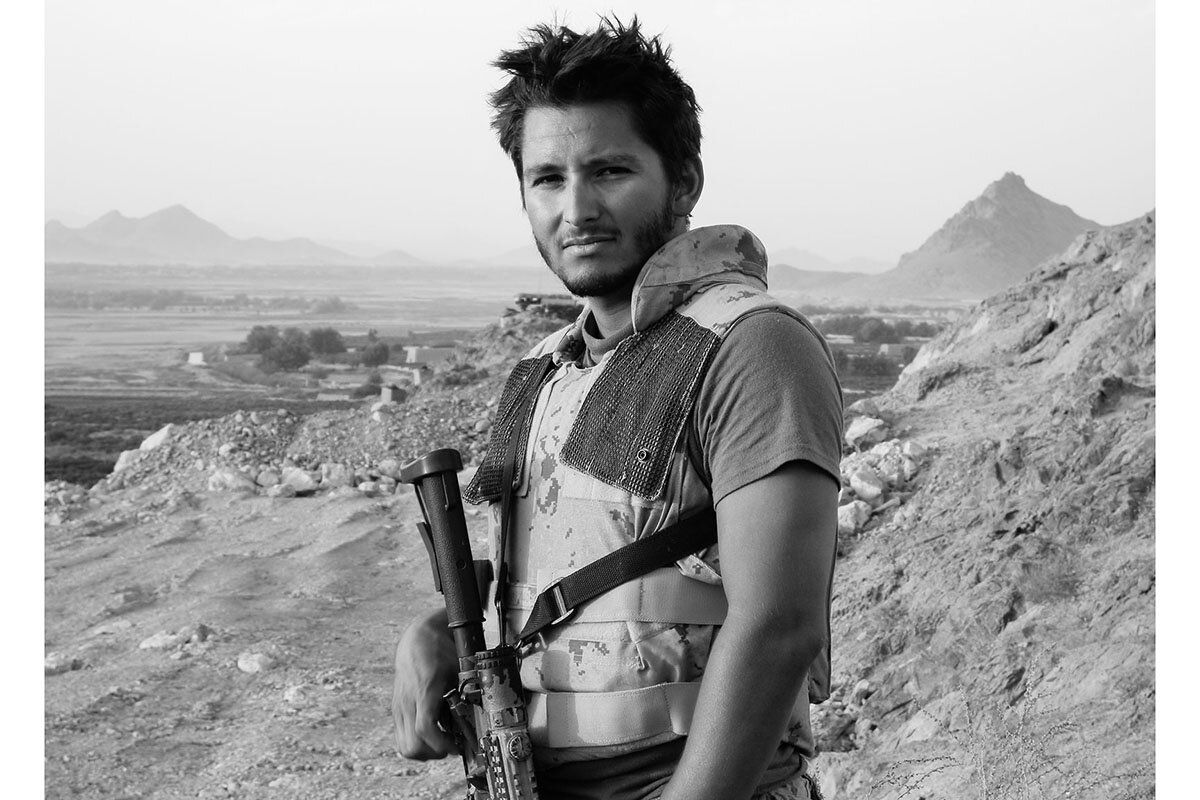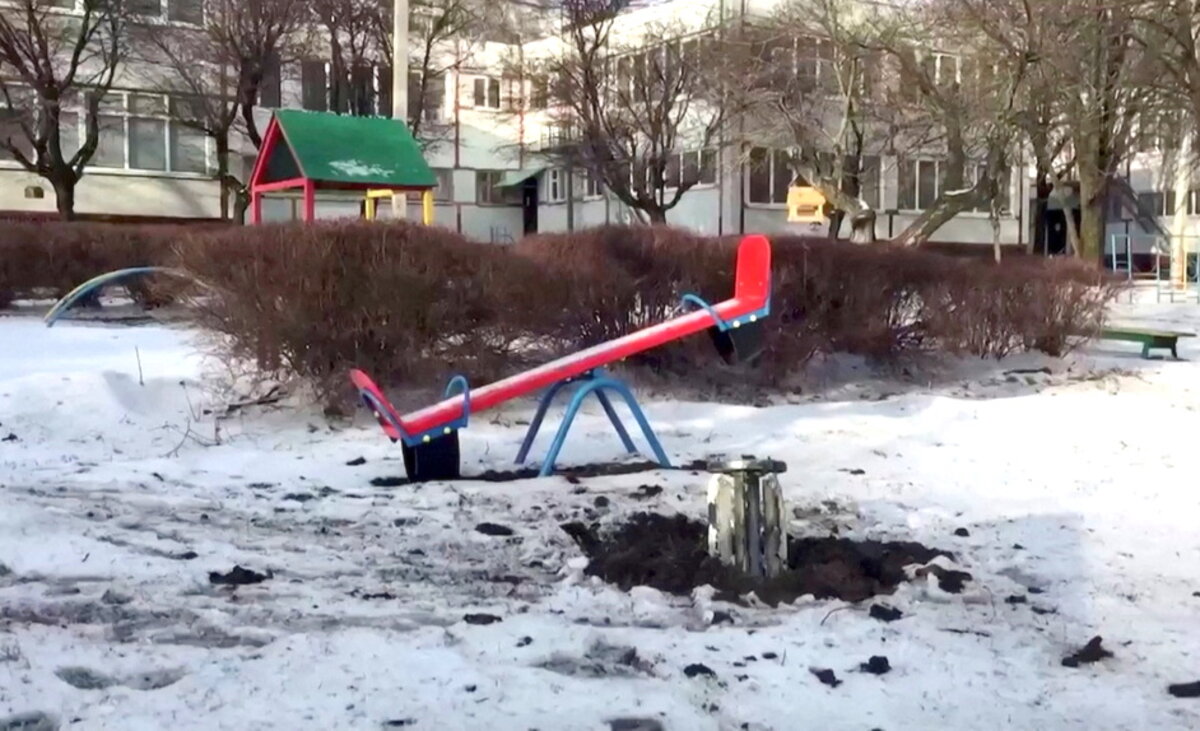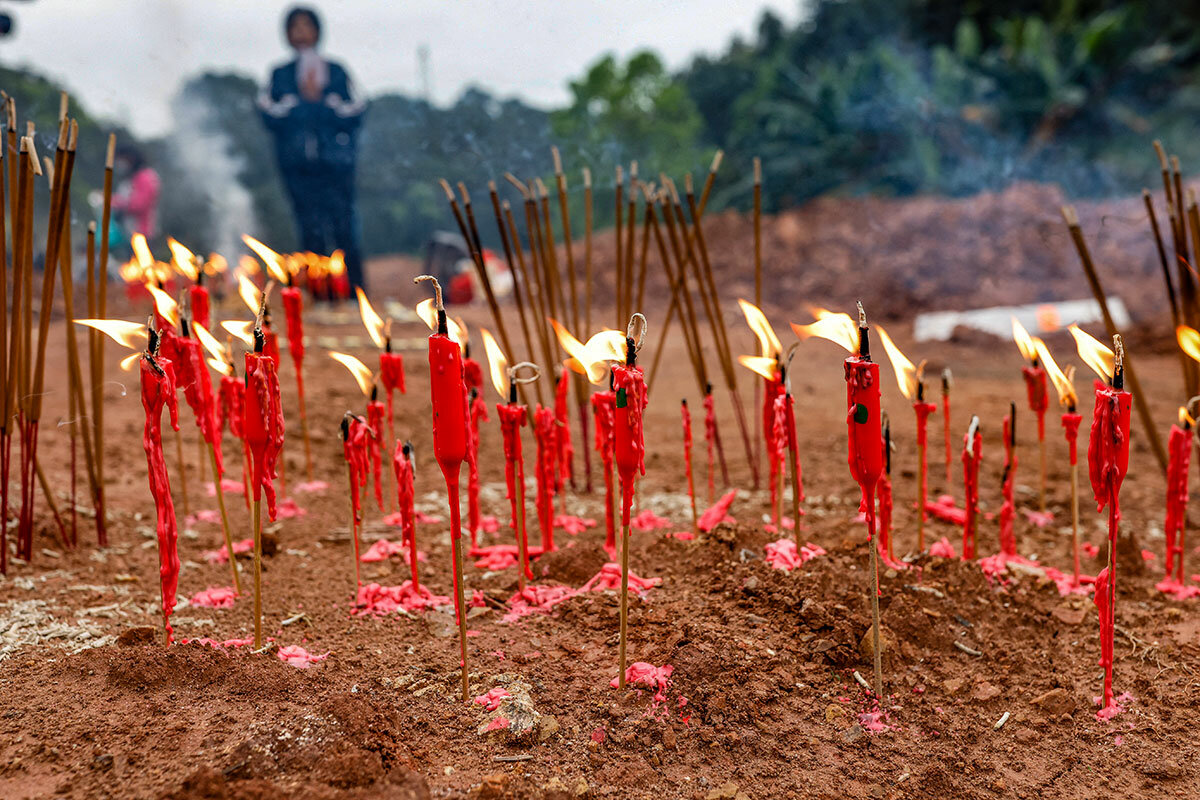What motivates a person to go risk life and limb fighting in a country where they don’t have a familial connection? For some, a sense of duty and justice.
Monitor Daily Podcast
- Follow us:
- Apple Podcasts
- Spotify
- RSS Feed
- Download
 Laurent Belsie
Laurent Belsie
I stopped at the gas station the other day and shelled out $72.19. Thought No. 1: I’ve never, ever paid $70 to fill up a car. Thought No. 2: Wisconsin.
I don’t know why that trip stands out. In college, I drove with a roommate from Chicago to Milwaukee. I had enough gas to get us out of expensive Illinois and practically willed my Volkswagen Beetle over the Wisconsin line. Sign after sign advertised 55 cents a gallon, and I remember thinking how expensive that still was.
It was the late 1970s. The decade’s first oil embargo had already shattered America’s illusion that energy would be always abundant and reliably cheap. Within a couple of years, the second embargo would produce even more sticker shock: a dollar-plus per gallon. Those price increases were scary – more scary, somehow, than what we’re experiencing today.
Some of that shift in perspective is personal. My financial picture looks more solid than in those shaky college days. Also, inflation has tamed the price monster a bit. Americans actually are spending fewer inflation-adjusted dollars for gas today than they did during that second embargo four decades ago and during the Great Recession and the first half of the last decade. As one of our stories today points out, that’s cold comfort for families feeling the one-two punch of 40-year high inflation and high gas prices.
But I suspect other factors account for most of the diminishing dread over energy. First, today’s expensive gasoline now largely comes from American oil, not foreign oil, as was the case in the 1970s. And while the fracking revolution that produced that bonanza certainly does the climate no favors, we now have a greener alternative to gas-powered transportation – a growing fleet of electric cars.
That takes some of the sting (though not all of it!) from $72.19 at the pump.











